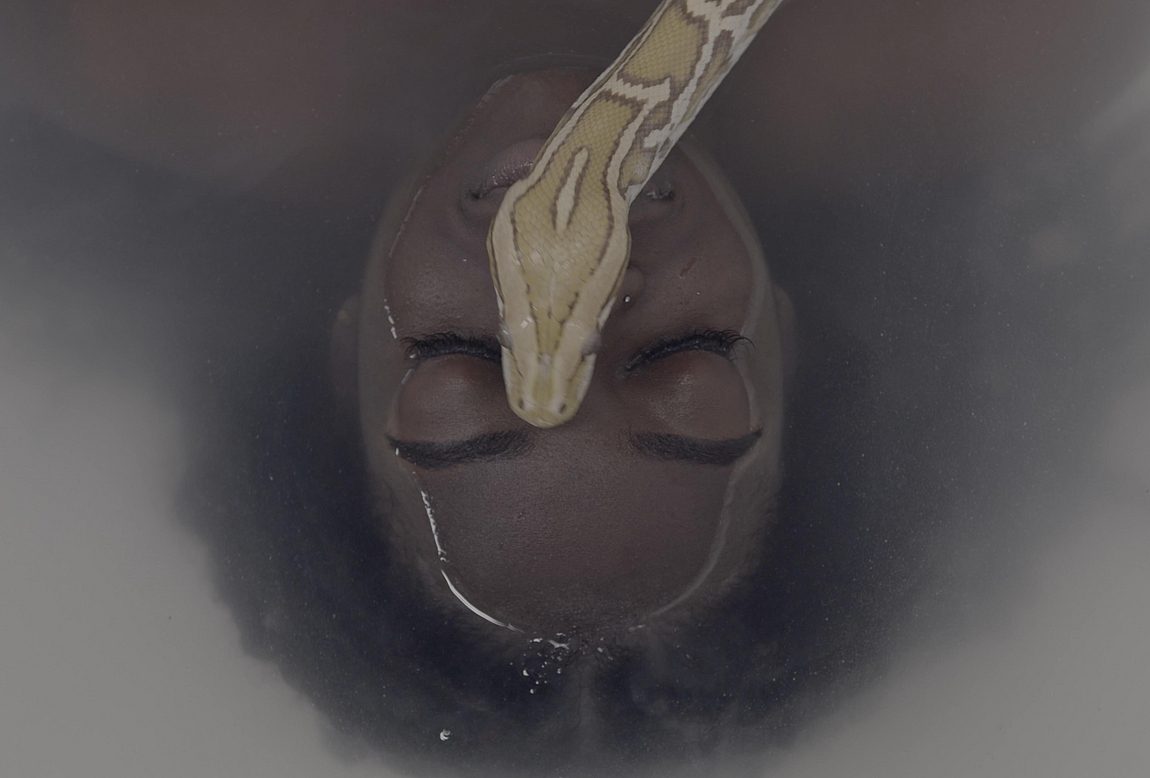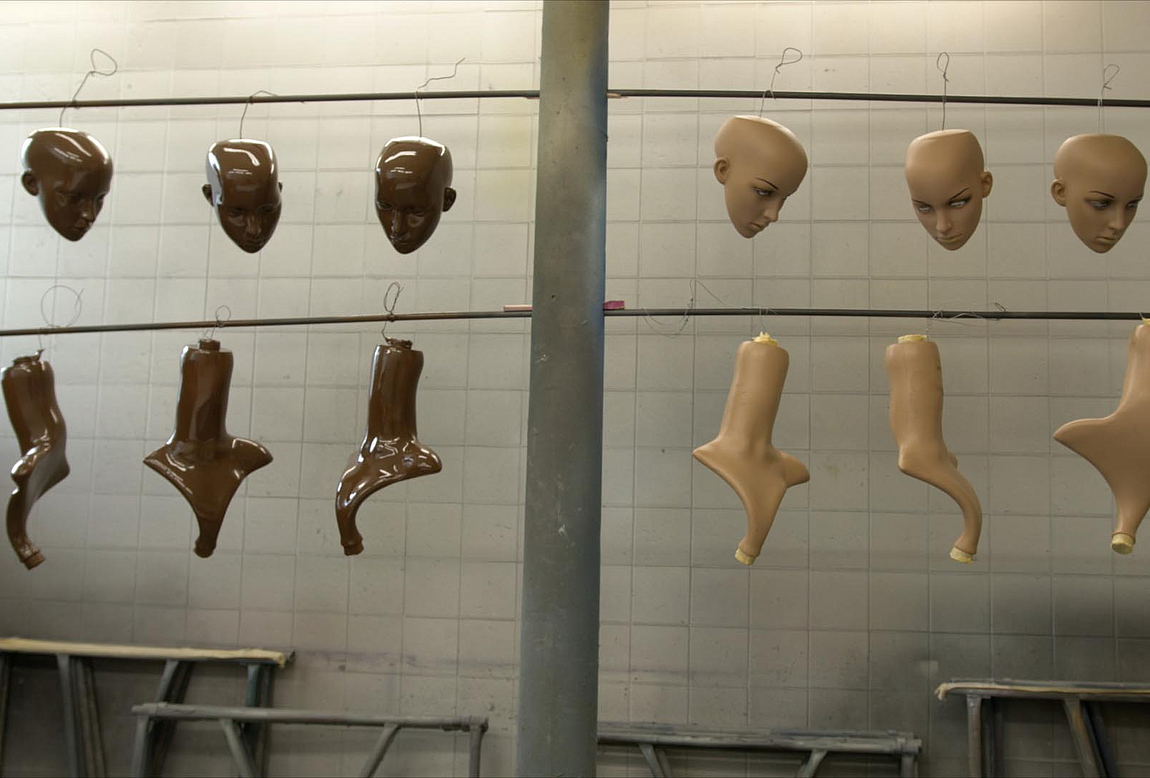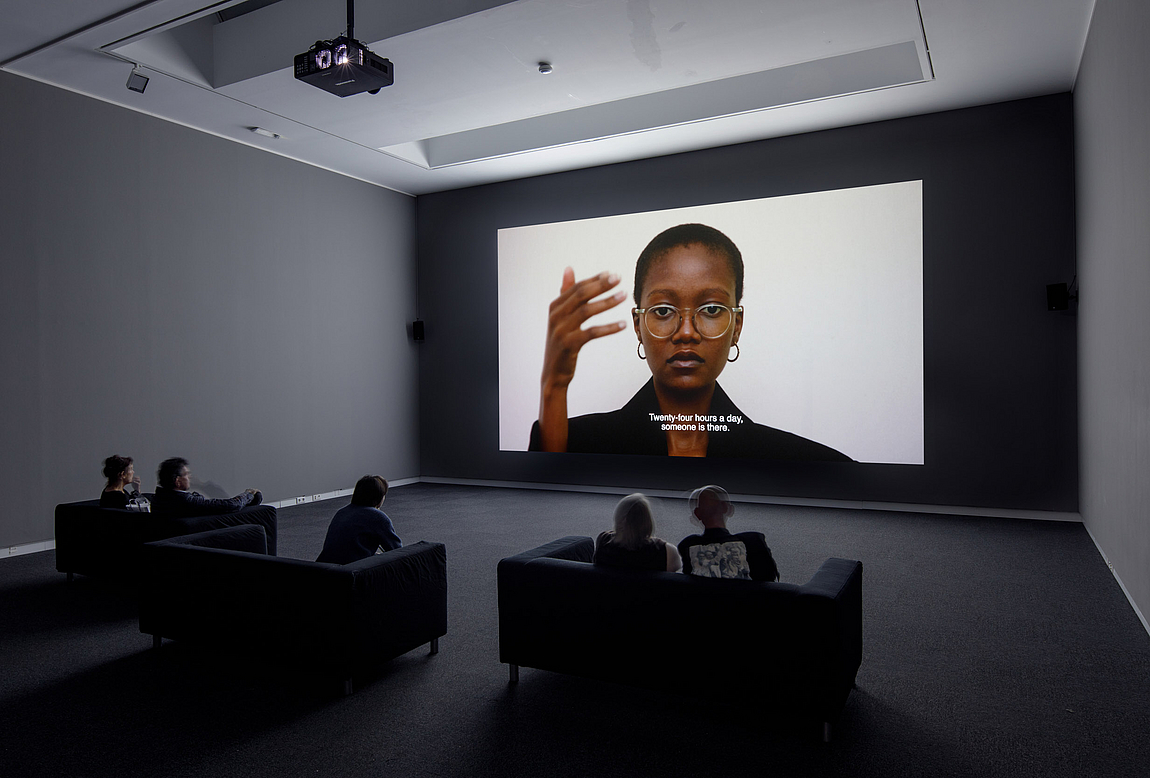Silvia Martes
Eindhoven Nederland , lives and works in Amsterdam/Eindhoven
The Revolutions That Did (Not) Happen
2021
single-channel video installation
28:24 min.
2021.SM.01
Body parts on hung from a clothesline, mannequins that come to life and human teethas currency: the Silvia Martes film The RevolutionsThat Did (Not) Happen (2021) quickly gives rise to an ominous feeling. But with her surrealistic science-fiction tales, Martes keeps us riveted to the image.
Martes (1985), who finished her artist-in-residence period at Amsterdam’s Rijksakademie in the summer of 2021, was awarded with the Theodora Niemeijer Prijs 2021 a few months later. She usually makes short films in which alienating events derive their credibility from film sets that she herself has meticulously designed. The films, in which the artist herself generally plays a role, tell no clearly chronological story. They are sooner collages of various, sometimes absurdist scenes that have been loosely and intuitively interwoven. The viewer is given casual glances, as it were, into a world that initially seems familiar but which nonetheless remains totally elusive. It is then up to viewers to interpret this suggestive collage of images and puzzling scenes and make their own stories with it.
This film of Martes takes place in the year 2085, although this is never explicitly evident. In a wordless narrative, she suggests an age in which political and social structures have collapsed as a result of wars, pandemics and natural disasters. The new society to be developed is one of equality, one where women of color – in line with the artist’s own skin color – work in all levels of its hierarchy. But it is also a society that bears an unpleasant number of similarities to a totalitarian state, in which everyone’s identity has been swapped for a grey suit, and people carrying out monotonous actions cannot be distinguished from robots. For this film Martes has taken inspiration from the way in which, through the influence of the Internet and social media, we have all begun to resemble each other, while – paradoxically enough – individuality is being rewarded with ‘likes’ at the same time. The film is thus full of ambiguities about the necessity and meaning of change, mass behavior, individuality and the costs of the work ethic. Matters that continue to occupy us even after the film is over. By fantasizing about the future, Martes exposes above all the shortcomings of the present.


